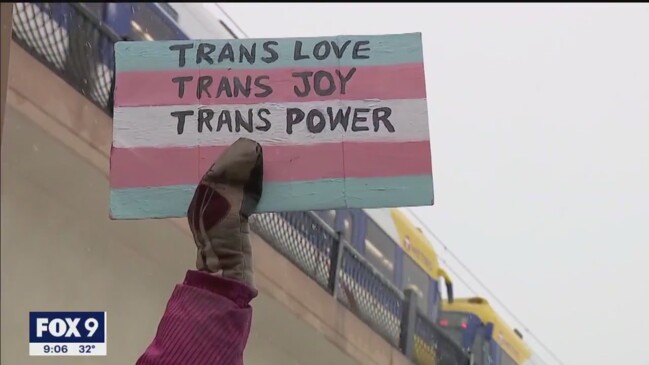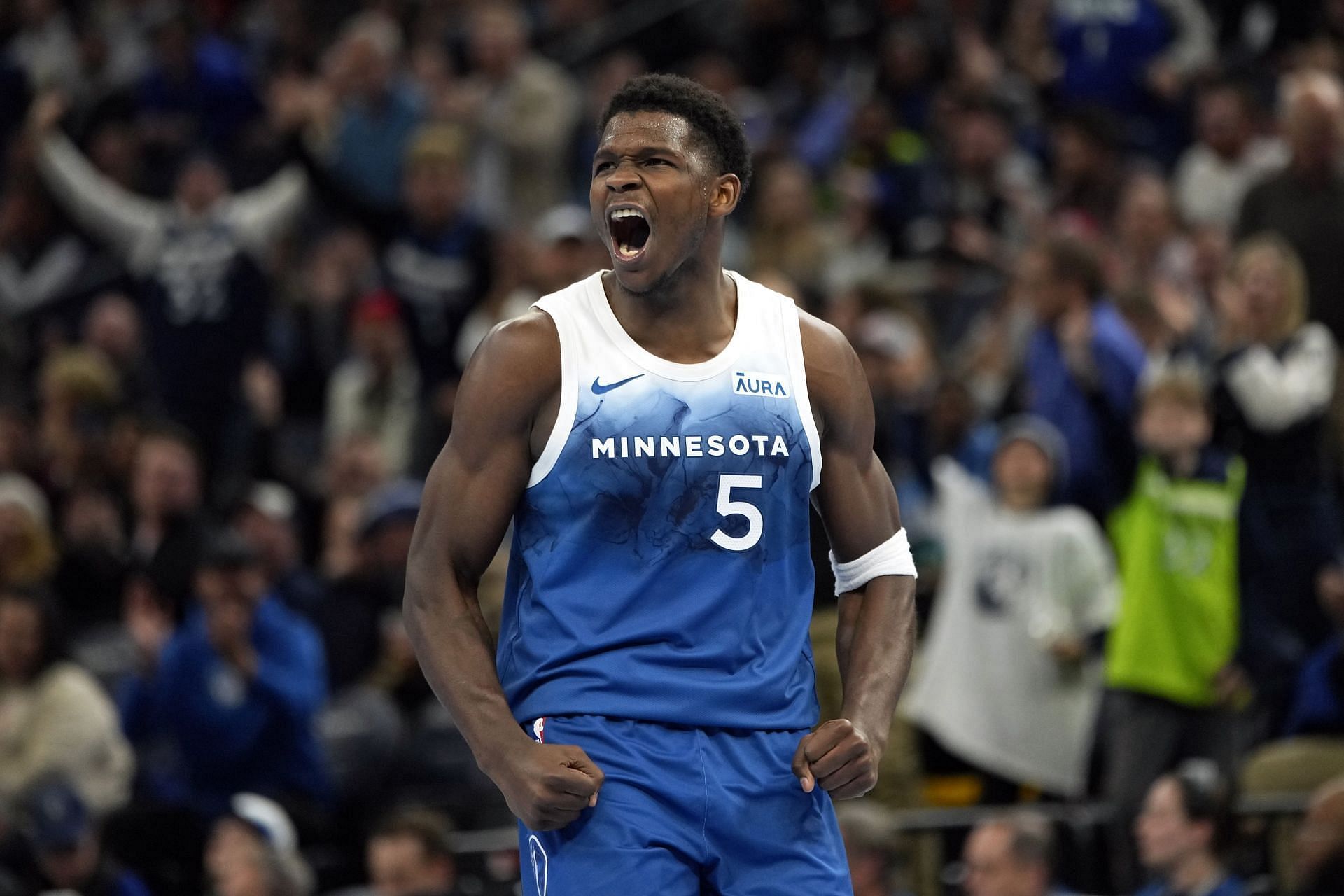Federal Government Challenges Minnesota's Stance On Transgender Athletes

Table of Contents
Minnesota's Current Policy on Transgender Athletes
Minnesota's current policy on transgender athletes' participation in school and collegiate sports is a complex one, shaped by various factors and subject to ongoing review. While there isn't one single, overarching law, the state's approach is largely determined by guidelines and interpretations applied by organizations like the Minnesota State High School League (MSHSL). These guidelines typically involve considerations of hormone levels, gender identity declarations, and participation levels.
- Summary of key elements: Minnesota's policy generally aims to balance inclusivity with fair competition. However, the specifics are often left to individual school districts and governing bodies to interpret and implement.
- Specific legislation/guidelines: There isn't a single piece of state legislation directly addressing transgender athlete participation in all sports. Instead, the MSHSL and other governing bodies establish policies based on existing federal and state anti-discrimination laws and their interpretations.
- Recent changes/updates: The policy has seen gradual evolution, responding to both legal challenges and evolving societal understanding. Any recent changes or updates should be sought from official sources like the MSHSL website.
- Key organizations involved: The Minnesota State High School League plays a critical role in shaping policies for high school sports. The Minnesota Intercollegiate Athletic Conference (MIAC) and other collegiate athletic organizations establish their own guidelines.
The Federal Government's Challenge and its Rationale
The federal government's challenge to Minnesota's approach to transgender athletes primarily stems from concerns about Title IX compliance. While the specific actions may involve lawsuits, investigations, or the potential withholding of federal funding, the core argument centers on the perceived conflict between allowing transgender girls to compete in girls' sports and the principle of fair competition for cisgender female athletes.
- Federal government objections: The central objection is that allowing transgender women to compete in women's sports creates an unfair advantage, undermining the spirit and intent of Title IX, which prohibits sex-based discrimination in schools receiving federal funding.
- Legal arguments: The federal government's legal strategy likely relies on arguments about biological differences between males and females, arguing that these differences create inherent advantages in athletic competition. They are likely to cite cases and precedents concerning sex-based classifications in sports.
- Legal precedents: Cases involving gender identity and athletic participation, both at the state and federal level, will significantly influence the legal arguments presented.
- Relevant federal laws/regulations: Title IX is the key federal law at the heart of this dispute, prohibiting discrimination based on sex in educational programs and activities that receive federal financial assistance.
Arguments For and Against Minnesota's Policy
The debate surrounding transgender athletes Minnesota highlights a fundamental conflict between inclusivity and fair competition. Understanding both sides is crucial.
Arguments in Favor of Inclusivity
Arguments supporting Minnesota's inclusive approach (or similar policies) often emphasize the importance of inclusivity, fairness, and the overall well-being of transgender youth.
- Fairness and inclusion: Proponents argue that excluding transgender athletes is discriminatory and denies them equal opportunities to participate in sports, a crucial aspect of social and emotional development.
- Mental health: Participation in sports can provide significant mental health benefits, and excluding transgender athletes can negatively impact their mental well-being.
- Equal opportunities: Allowing transgender athletes to participate aligns with broader efforts to promote equality and inclusion in all areas of life.
Arguments Against Inclusivity
Conversely, those opposing Minnesota's (or similar) policies raise concerns primarily focused on fair competition and the potential impact on cisgender female athletes.
- Fair competition: The main concern revolves around the perceived biological advantages that transgender women may possess, which could potentially disadvantage cisgender female athletes.
- Biological differences: Studies on the impact of hormone therapy on athletic performance are often cited as evidence of persisting biological advantages.
- Impact on cisgender female athletes: Opponents argue that including transgender women might reduce opportunities and achievements for cisgender female athletes, potentially discouraging participation.
Potential Outcomes and Implications
The legal battle's outcome could significantly impact transgender athletes in Minnesota and across the nation.
- Possible outcomes: The court could uphold Minnesota's policy, potentially setting a precedent for other states. Alternatively, it could rule against Minnesota, potentially leading to policy changes nationwide.
- Changes to Minnesota's policy: Depending on the outcome, Minnesota might need to revise its guidelines, potentially leading to more restrictive or more inclusive policies.
- Impact on other states' policies: The ruling could influence other states grappling with similar issues, either encouraging them to adopt more inclusive or more restrictive policies.
- Wider implications for LGBTQ+ rights: The case's outcome will have broader implications for LGBTQ+ rights and the ongoing struggle for equality and inclusion.
Conclusion
The federal government's challenge to Minnesota's stance on transgender athletes highlights a complex issue with significant implications for both sports and LGBTQ+ rights. The arguments presented, focusing on inclusivity versus fair competition, demonstrate the challenges in balancing these critical considerations. The outcome of this legal battle will likely shape policies nationwide, influencing how states navigate this evolving area of law and social policy. Stay informed about the ongoing developments in this crucial debate regarding transgender athletes in Minnesota and beyond by following reputable news sources and organizations working to support the rights of transgender individuals. Understanding the complexities of this issue is paramount to fostering a fair and inclusive environment for all athletes. Learn more about the ongoing work to ensure fair treatment for transgender athletes Minnesota and beyond.

Featured Posts
-
 Anthony Edwards Injury Update Will He Play Lakers Vs Timberwolves
Apr 29, 2025
Anthony Edwards Injury Update Will He Play Lakers Vs Timberwolves
Apr 29, 2025 -
 Kl Ma Thtaj Merfth En Fn Abwzby Bdea Mn 19 Nwfmbr
Apr 29, 2025
Kl Ma Thtaj Merfth En Fn Abwzby Bdea Mn 19 Nwfmbr
Apr 29, 2025 -
 Tylor Megills Pitching Success With The Mets A Deep Dive
Apr 29, 2025
Tylor Megills Pitching Success With The Mets A Deep Dive
Apr 29, 2025 -
 Lakers Vs Timberwolves Anthony Edwards Game Status And Injury Report
Apr 29, 2025
Lakers Vs Timberwolves Anthony Edwards Game Status And Injury Report
Apr 29, 2025 -
 The Winning Names Minnesota Snow Plow Contest Results
Apr 29, 2025
The Winning Names Minnesota Snow Plow Contest Results
Apr 29, 2025
